Can slapping on some nose filters prevent the anguish of hay fever?
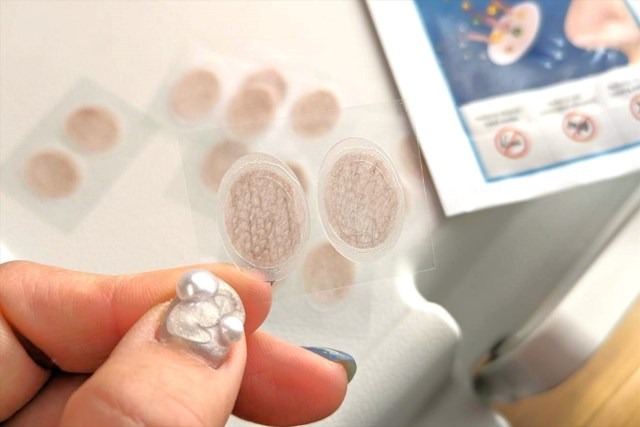
And is the illusion of snot better than actual snot?
Spring is always a bittersweet time in Japan because despite the warmer weather a flood of Japanese sugi cedar pollen fills the air and torments allergy sufferers to no end. With such a widespread problem, it’s only natural for companies to try and find a marketable solution but the chorus of sniffles and sneezes echoing across the country suggests one has yet to be found.
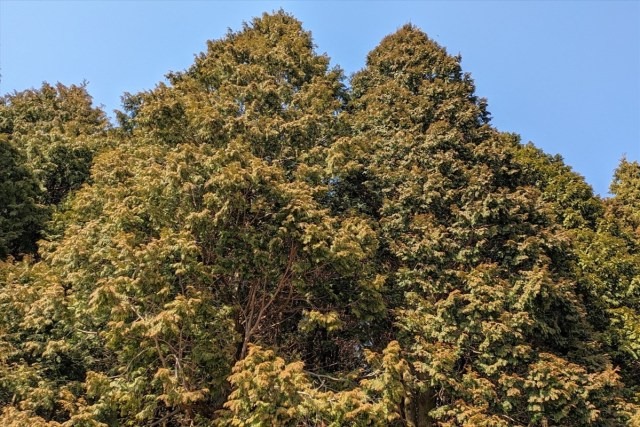
Nevertheless, those afflicted with hay fever are willing to try anything once, which brings us to our writer Haruka Takagi. The constant irritation inside her nose drove her to invest in some nose filters for 1,481 yen (US$10) a pack.
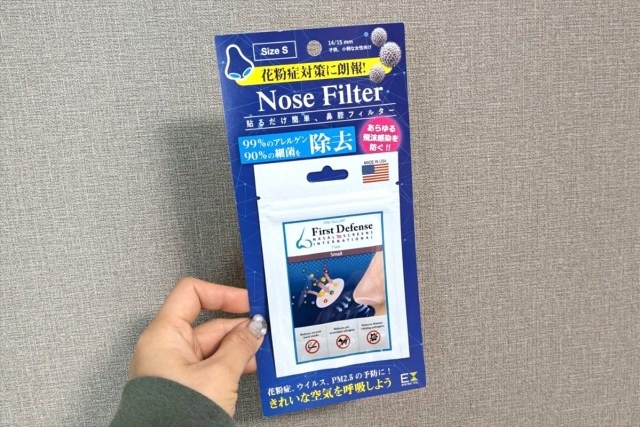
According to the package, First Defense filters are made in the USA and boast the blockage of 99 percent of allergens and 90 percent of bacteria.
Looking inside, Haruka found what looked like a bunch of tiny band-aids, just big enough to cover her nostrils. Considering how many were in the pack, it worked out to about 211 yen ($1.40) per pair which was a little pricey.
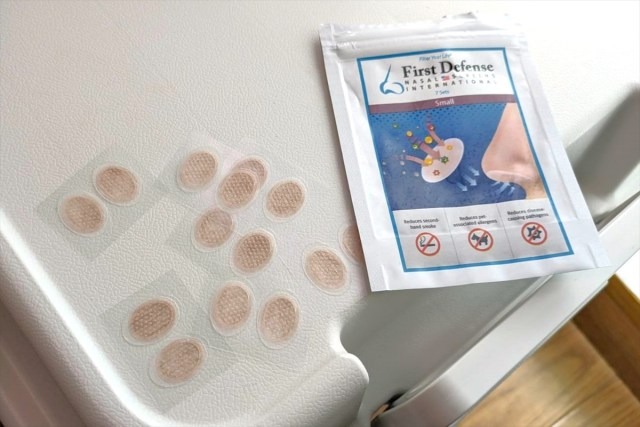
The way they work is simple: Just clean your nostril area of any snot and/or oil, peel off the back, and apply over said nostril.
However, in practice, the application part was surprisingly tricky considering we can’t easily see right under our noses despite what the idiom might have us believe.
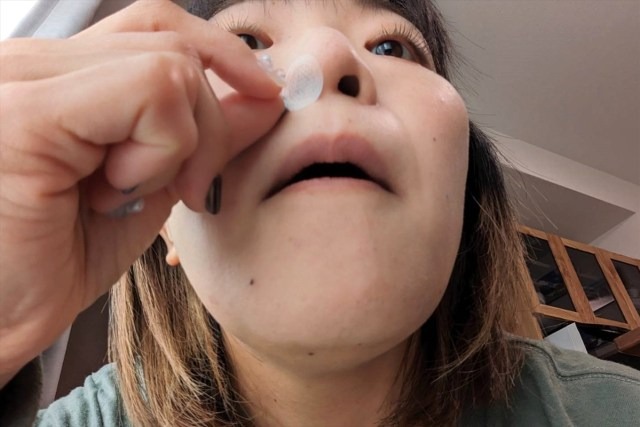
Besides the visual problems, Haruka suddenly realized how intricately contoured the human nostril is, making application even more of a complicated process. Applying the filter too tightly in one spot would make it come loose in another spot, and achieving a tight seal took a fair bit of trial and error.
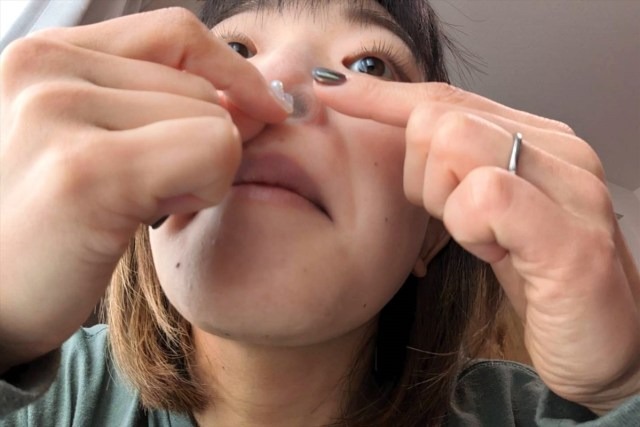
With the application finished, our writer was met with the second inherent problem of First Defense. While the beige coloring of such adhesive bandages might help them blend in with certain skin tones, they have the opposite effect on nostrils.
Human instinct is to see two little holes at the bottom of other people’s noses, and if those shadowy crevices aren’t there, it’s only natural to assume that person has a nose full of boogers.
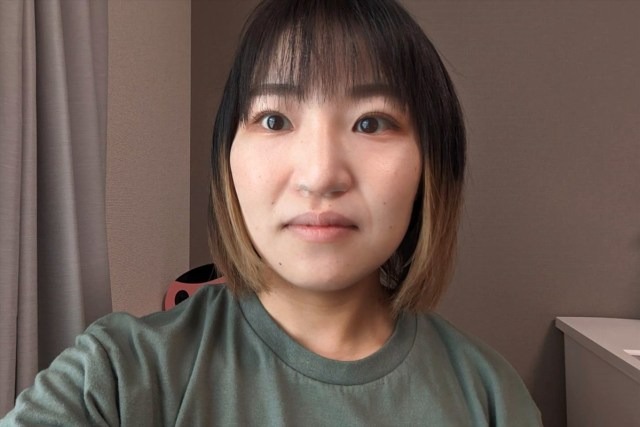
That’s no way to face the world, so Haruka did a little DIY improvement and drew her own nostrils on top of the filters. When doing this one must be careful not to disturb the seal and also not use a marker with harmful fumes. In Haruka’s case, she used some eyeliner.
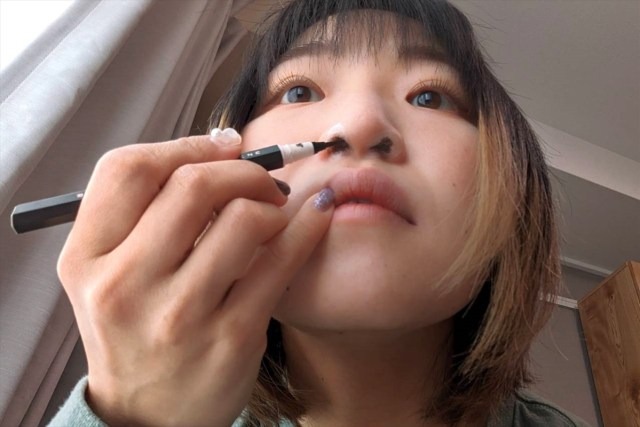
It still looked kind of strange, but at least it would fool casual glances in her direction. She hopped into her car and headed for some trees to test First Defense out in the field.
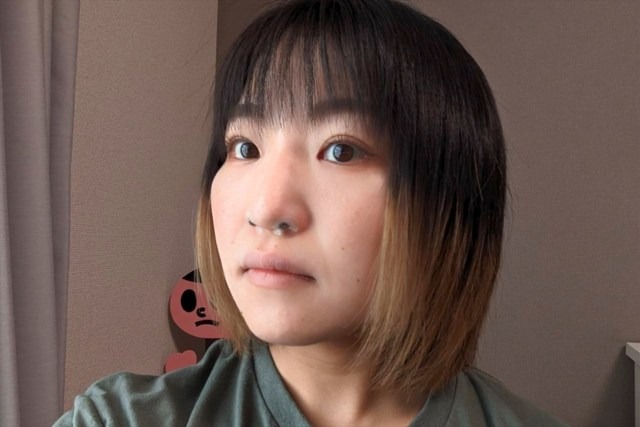
Sure enough, about 10 minutes into her trip a powerful sneeze ripped through her nose and dislodged her filters.
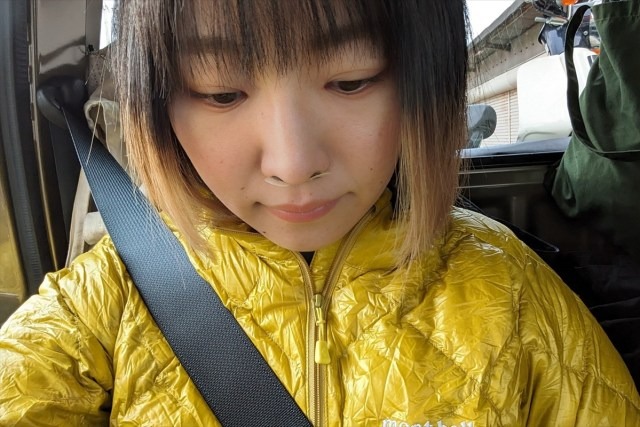
It wasn’t enough to completely blow them off. Instead they sort of half-clung to her nostrils and moved in and out as she breathed, like a pair of check valves. In that way, they were probably still functional, but try having a conversation with someone while your nose gills are undulating.
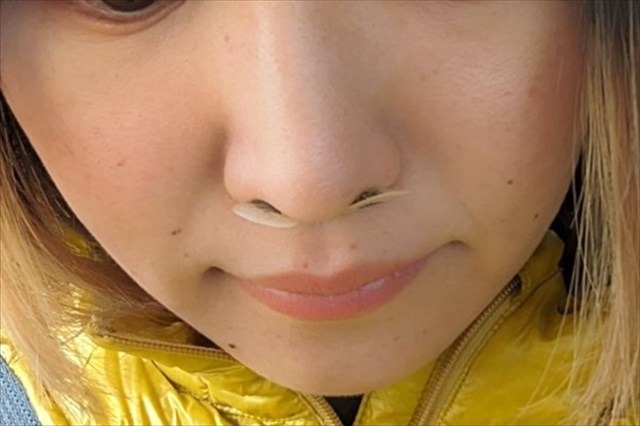
Instead, Haruaka took them off and applied some new filters, once again going through the process of cleaning the area and applying them with a mirror and steady hands. She also pushed them in a little deeper this time, both to make them stick better and in a futile attempt to simulate real nostrils.
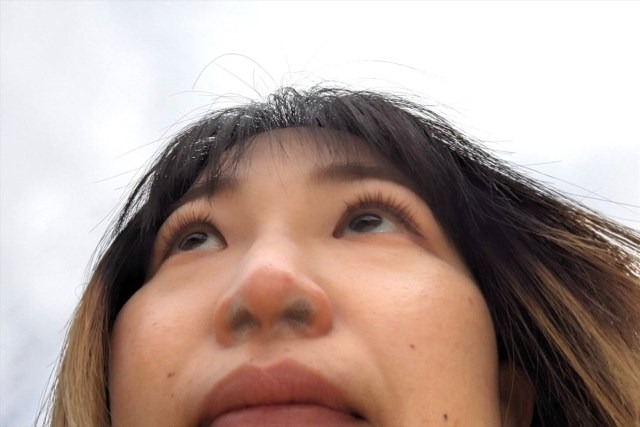
She couldn’t help but feel self-conscious the whole time wearing First Defense. As she ate lunch in a restaurant she felt stares at her nose which appeared to be dripping with snot.

Her one saving grace was that as a motorcyclist, she could wear a mask and helmet over the top, providing her with added protection from both pollen and the judgment of others. Even without the helmet, mask-wearing continues to be a common part of life in Japan, especially during allergy season, so anyone can get away with it.
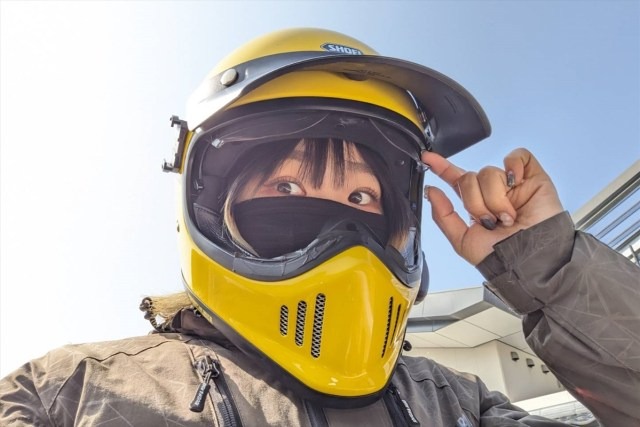
Or so she thought…
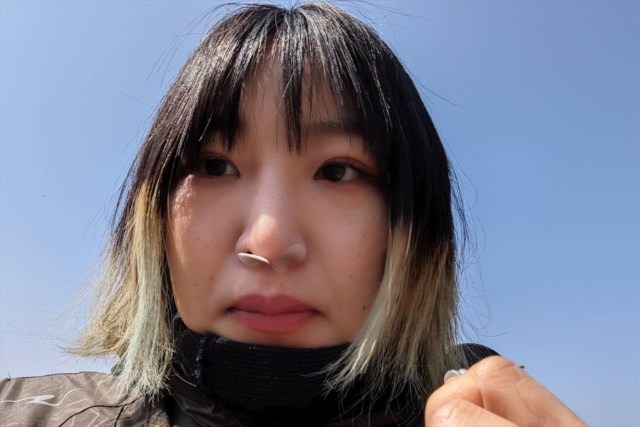
This time it would appear as if the humidity under her mask caused the glue in the filters to weaken considerably. After about an hour, she pulled down her mask and they were barely hanging on. The inevitable sneeze from her unprotected nose finished the job and removed them completely.
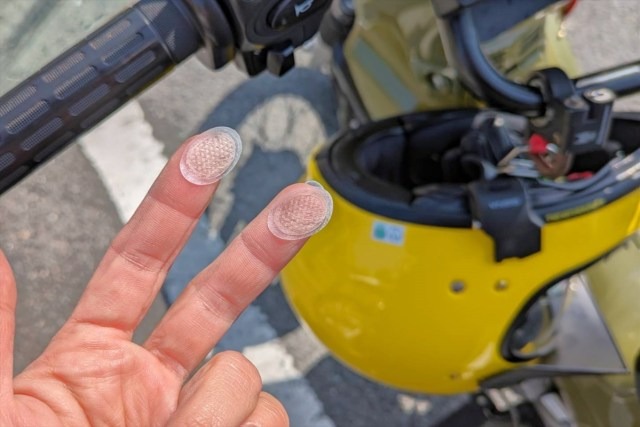
In the end, Haruka could say that First Defense did block out pollen significantly and her itchy, runny nose subsided quite a bit while they were on. It’s just that the way they look, combined with their cost – which can really add up considering how easily they fall off – make this a product suitable only for financially well-to-do people who also don’t care how they look in public.
If you happen to be one of those people, then this product is for you. For everyone else, the search goes on…
Photos ©SoraNews24
● Want to hear about SoraNews24’s latest articles as soon as they’re published? Follow us on Facebook and Twitter!
Credit:

0 comments:
Post a Comment